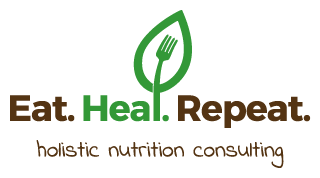You’ve probably heard your (or someone else’s) grandma say that breakfast is the most important meal of the day. Well, she was on to something… A prolonged state of fasting is stressful for your system, and can disrupt your metabolism, affect your blood chemistry and dampen your cognitive (brain) power. If you’re trying to control your blood sugar levels, readjust your metabolism, beat carb cravings, regain hormonal balance, or you’re just wanting to be healthier and have more stable energy levels, breakfast is where it all starts.
However, while it's always a great idea to eat SOMEthing in the morning, some foods are healthier than others. A breakfast that contains a variety of nutrients is best. After an overnight fast, your body needs energy from protein, fat and complex carbohydrates to refuel. On the Standard American Diet, we often focus on grains for breakfast and forget about protein. Here’s why you may want to start building this vital macronutrient into the first (and most important) meal of the day:
1 It is satisfying and will keep you feeling full (and from overeating) longer
Research shows that consuming a minimum of 20 grams of protein at breakfast can help individuals feel full longer and consume fewer calories throughout the day.
2 It balances your blood sugar throughout the day
Protein slows your digestion, which is why a breakfast with balanced amounts of fat, protein and fiber ensures that you are absorbing nutrients at the right rate. This means that your cells will get consistent fuel, instead of getting overwhelmed by a wave of sugar (from oatmeal, toast, or even a healthy juice alone, without other macronutrients).
3 It supplies the building materials our bodies constantly need for repair and maintenance
Without protein, we cannot build or maintain muscles, repair tissues, make immune cells, enzymes, or hormones (including insulin, sex hormones and thyroid hormones, which control our metabolism).
4 It is essential for detoxification
Our liver works very hard around the clock, to get rid of toxins and waste products. This process is driven by enzymes, which, you guessed it, depend on protein.
5 It may just improve your mood
Protein is a component of neurotransmitters, the feel-good hormones in your brain. Low protein intake and blood sugar swings (from imbalanced, carb-heavy meals or skipping breakfast) both affect the delicate balance of these neurotransmitters negatively.
FAQ:
Q: How much protein should I get at breakfast?
A: Individual needs vary and depend on body composition, constitution, digestive health, stress and activity levels. Without a healthy gut and liver, you may not be able to work with all the protein you are consuming. Finally, quality matters as much as quantity, and not all protein-foods are created equal. If you have questions or concerns about any of these factors, consult a nutrition professional.
As a rule of thumb, healthy individuals should aim for a minimum of 20 grams of protein for breakfast.
Q: Why can’t I eat all my protein for the day at lunchtime?
A: Our bodies don’t store protein very efficiently, yet we need a consistent supply. The solution is easy: have some protein at every meal and snack, and the first 20 grams within one hour of waking.
Q: What do 20 grams of protein look like?
A two-egg frittata with 1 cup chopped vegetables (from dinner the night before)
8 oz. of plain yogurt layered with ¾ cup of fresh, chopped fruit and a sprinkle of nuts
1 corn tortilla filled with two scrambled eggs, ¼ cup beans, ¼ avocado and some pico de gallo
2 patties of homemade breakfast sausages (3 oz.) and ¾ cup wilted greens
½ cup sweet cherries with 1 cup cottage cheese and 3 tablespoons of granola
…
Get creative! It is best to get a sense for what an appropriate serving of protein looks like for you, and to compose balanced meals, rather than count calories or grams of any macronutrient, in the long run.
A final word of advice: Don't eat breakfast in your car, if you can help it. You want for your digestive system to be in a state of 'rest and digest', not 'try to get three lanes over'. Various studies have shown that eating mindfully increases your absorption of nutrients, and you don't want to waste any of the good stuff you are feeding your body - or do you?

